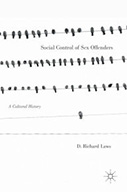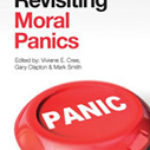Social Control Of Sex Offenders: A Cultural History

Author: D. Richard Laws
Publisher: Palgrave Macmillan, 2016. 287p.
Reviewer: Richard Tewksbury | March 2017
For those looking for a succinct, broad-ranging, and informative book that provides an overview of how and why contemporary society responds to sex offenders as it does, D. Richard Laws has provided an easy-to-read answer. Social Control of Sex Offenders is a relatively short book that provides an introduction to how our social control mechanisms have developed and evolved, how sex offenders are viewed legally and popularly, and how sex offender registration, community notification, residence restrictions and treatment programs help, hinder, and control sex offenders. Laws’ book provides readers who are only vaguely familiar with sex offender issues a greater understanding of the major issues involved, and will undoubtedly spur readers to seek additional, deeper answers to their questions.
Laws’ book is a very good read for those interested but largely unschooled on sex offender issues. The coverage of a broad range of issues allows the reader to see how issues connect across disciplines and even internationally. As I began reading the book, I was initially disappointed at the lack of depth provided for most points. But, by the time I reached chapter 4, I realized that I was looking at the book in the wrong way. While I was expecting a thick, rich, nuanced, and detailed treatment of how society attempts to exert social control over sex offenders, what I was finding was a quick read that hit the high points and moved on. What is lacking in depth is made up for in breadth. What Laws presents to readers is an easy read that serves as a very good introduction to the topic. The book would be most valuable for an undergraduate class that knows only what they hear in the media, or a community member intrigued by the latest reported developments in the social control of sex offenders. Similarly, I will have my new graduate students who wish to work in the area read this book, after which they will have no excuse for not being familiar with the foundational ideas and practices related to social control of sex offenders.
One of the great strengths of this book is that it reads in an interesting, engaging, and comfortable manner that avoids jargon and tangents, thereby facilitating understanding. Even when presenting relatively dry and straightforward information (such as reviews of risk assessment methods and tools) the style of the writing keeps readers interested. Most of the chapters in this text present information in both standard text form as well as several lists of issues, legal developments, or options for how situations can be handled. The use of bullet point lists allows the information to be presented, succinctly and quickly, avoiding extraneous explanations and transitions between issues. In this regard, the book is a great reference. One could easily pick up the book and refresh one’s knowledge about assessment instruments, consequences of residence restrictions, or even which other nations have laws and practices similar or different than America’s. These issues can be reviewed quickly and efficiently via a quick perusal of the relevant chapters.
Social Control of Sex Offenders is a timely, useful, efficient, easy-to-read book that would be most appropriate for the beginning scholar or informed community member to read. The book provides an impressive breadth of understanding with an appropriate level of depth that simultaneously satisfies and yet also spawns questions and interests that can be addressed via follow-up readings. For scholars familiar with the field of sex offender studies and social control, the book provides a handy reference for refreshing one’s understandings and remembering how and from where our current practices have evolved and emerged. Laws should be commended for a book that effectively and efficiently serves the needs of multiple groups of readers, and doing it in a way that is easy and enjoyable to read.
Richard Tewksbury, Professor of Criminal Justice, University of Louisville


